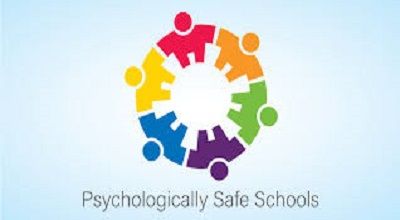Psychological Safety for Educators
Psychological safety is a crucial concept in the field of education. It refers to the climate in which educators and students feel safe to express themselves, take risks, and engage in open and honest discussions without fear of judgment or negative consequences. Creating a psychologically safe environment is essential for promoting effective teaching and learning. Here’s a guide to help educators foster psychological safety in their classrooms:
Understand Psychological Safety:
- Educators must have a clear understanding of what psychological safety means. It involves trust, respect, and a sense of belonging within the learning community.
Lead by Example:
- Demonstrate vulnerability and humility by sharing your own experiences and challenges. This encourages students to do the same.
Establish Classroom Norms:
- Collaboratively set ground rules or norms with your students at the beginning of the school year or course. Discuss how you will create a safe space for everyone.
Active Listening:
- Cultivate active listening skills to show that you value and respect students’ opinions. Encourage students to listen to one another attentively.
Encourage Feedback:
- Create opportunities for students to give feedback, not just on the course content but also on the learning environment itself. Regularly seek input on what’s working and what needs improvement.
Embrace Mistakes:
- Normalize mistakes as part of the learning process. Encourage students to learn from their errors rather than fearing them.
Empathy and Compassion:
- Show empathy and compassion towards your students. Understand their challenges, both inside and outside the classroom, and offer support when needed.
Inclusivity and Diversity:
- Foster an inclusive and diverse classroom environment where all students feel valued and respected, regardless of their background or identity.
Conflict Resolution Skills:
- Teach students conflict resolution skills to help them navigate disagreements and difficult conversations constructively.
Promote Growth Mindset:
- Encourage students to adopt a growth mindset, which emphasizes the belief that abilities and intelligence can be developed over time through effort and learning.
Address Bullying and Harassment:
- Take a strong stance against bullying and harassment. Ensure that students know how to report incidents and that they will be taken seriously.
Provide Resources:
- Offer resources such as counseling services, peer support groups, or mental health resources for students who may be struggling emotionally.
Model Self-Care:
- Show students the importance of self-care and stress management by modeling these behaviors in your own life.
Continuous Improvement:
- Regularly assess the classroom environment and seek ways to improve psychological safety based on feedback and observations.
Professional Development:
- Educators should engage in professional development related to psychological safety, emotional intelligence, and effective communication.
Seek Support:
- Reach out to colleagues, mentors, or support networks when you face challenges in creating a psychologically safe environment. Collaborate with others to improve classroom dynamics.
Evaluate and Adapt:
- Be willing to adapt your teaching strategies and classroom environment as needed to better meet the emotional and psychological needs of your students.
Note:
Creating psychological safety for educators and students is an ongoing process that requires commitment and effort. When students feel safe to express themselves and take intellectual risks, they are more likely to engage actively in the learning process, leading to better educational outcomes for all.
